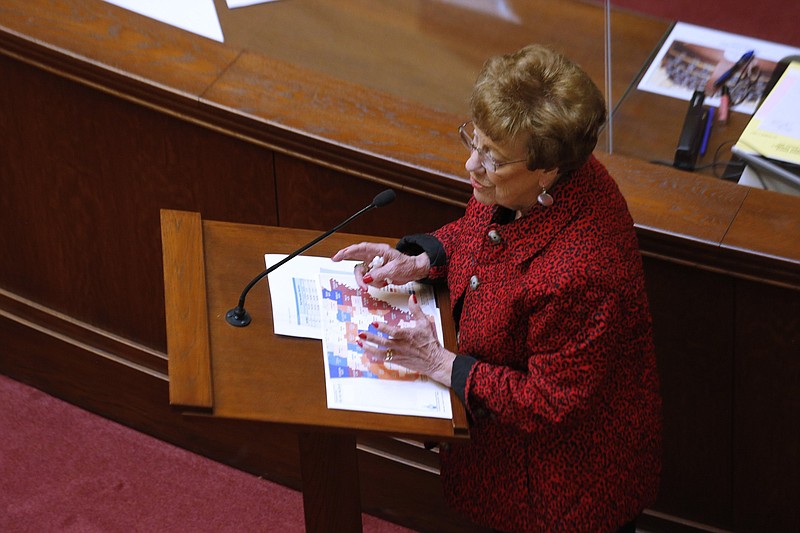A lawsuit filed recently in federal court contesting the new congressional district map approved last year by the General Assembly will be heard by a three-judge panel after Arkansas Attorney General Leslie Rutledge filed a notice with the court that her office will not oppose the request.
The plaintiffs in the suit -- six Pulaski County voters, including two state legislators -- have accused the state of diluting the Black vote in Arkansas' 2nd Congressional District through a gerrymandering method known as "cracking," which is used to disperse voters of similar interests among populations with which they hold little in common.
The plaintiffs -- Jackie Williams Simpson, Wanda King, Charles Bolden, Anika Whitfield, Democratic Rep. Denise Ennett and Democratic Sen. Linda Chesterfield, all of whom live in Pulaski County -- accuse the state of violating the U.S. Constitution, the Arkansas Constitution and the federal Voting Rights Act of 1965 by diluting Black voting power and influence through the newly drawn map.
Named as defendants in the lawsuit are Gov. Asa Hutchinson, Secretary of State John Thurston and the state of Arkansas.
The plaintiffs said the new 2nd Congressional District boundaries removed a large bloc of southern and eastern Pulaski County, populated primarily by Black residents, and divided that bloc between the state's 1st and 4th Congressional Districts.
To equalize the population between the 2nd District and other districts, the plaintiffs said, lawmakers added the overwhelmingly white population of Cleburne County into the district.
Though the case was initially assigned to U.S. District Judge James M. Moody Jr., the plaintiffs had requested the three-judge panel under 18 USC 2284 which requires such a panel "when otherwise required by Act of Congress, or when an action is filed challenging the constitutionality of the apportionment of congressional districts or the apportionment of any statewide legislative body."
According to the statute, when the district judge receives the request, it is then passed on to the chief judge of the circuit, who is then tasked with selecting two other judges -- at least one of whom must be a circuit judge -- to join the presiding judge on the panel.
In this case, according to the statute, Circuit Judge Lavenski Smith, the chief judge of the 8th Circuit Court of Appeals based in St. Louis, will select the two judges who will join Moody to make up the three-judge panel.
Richard Mays, counsel for the plaintiffs, welcomed the development.
"A three-judge panel is required in cases involving the voting rights act, which is one of our claims," he said. "I think it's a serious enough issue to merit a three-judge court."
The statute says a single judge may conduct all proceedings in the matter except the trial, which is required to be heard by the full panel. Any action taken by a single judge is subject to review by the full court at any time before a final judgment is rendered.
A similar lawsuit was filed Tuesday in Pulaski County Circuit Court alleging that the new congressional map violates the Arkansas Constitution.

